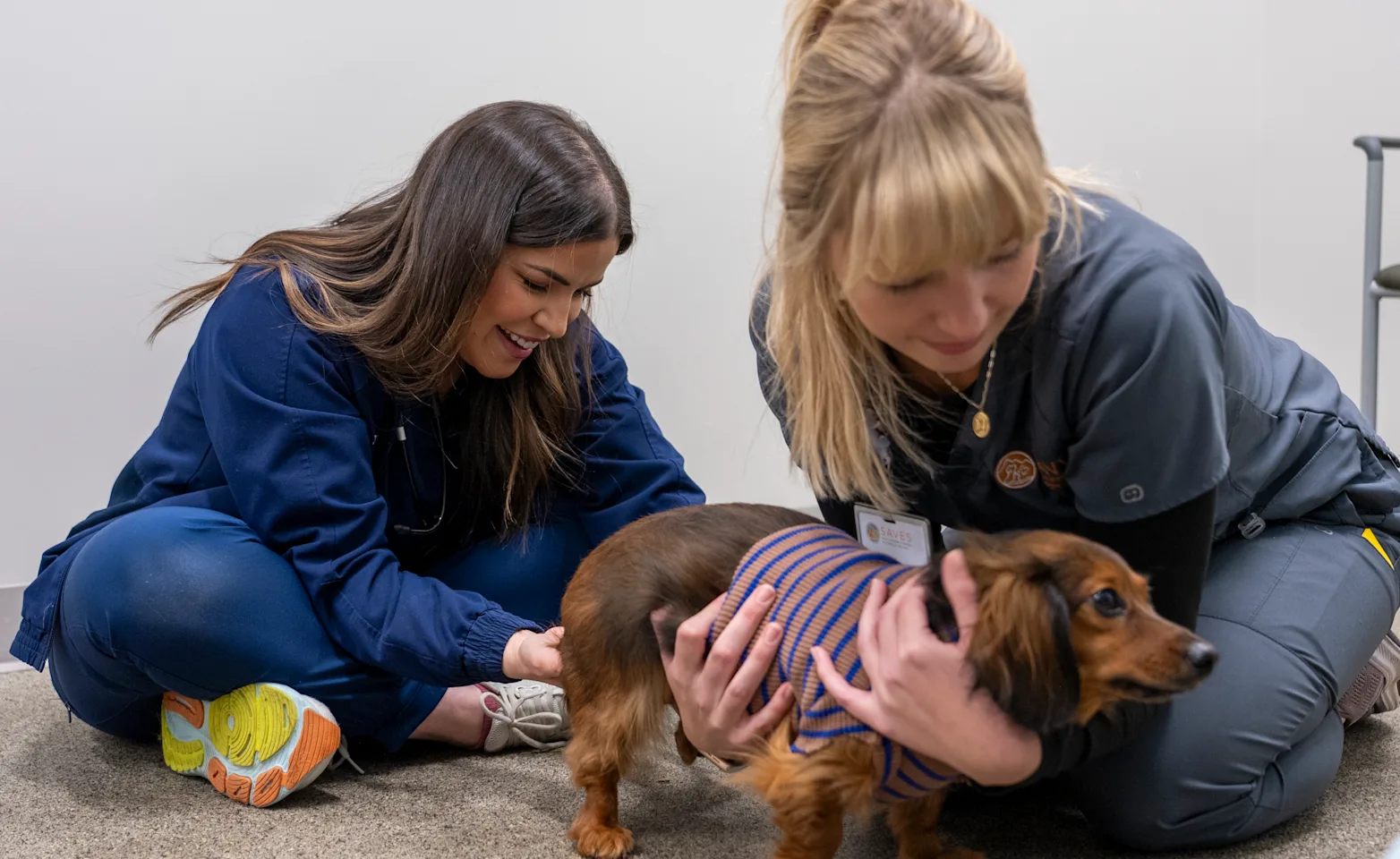South Asheville Veterinary Emergency & Specialty

Overview
Veterinary neurologists diagnose and treat diseases of the nervous system, which includes a pet’s brain, spinal cord, and nerves. A pet’s nervous system is their internal communication system, and neurologic disorders can cause deficits that significantly affect normal function and quality of life. Our veterinary neurologist leads a team of highly trained veterinary technicians. Together, they make it their mission to provide cutting-edge care to effectively manage every patient’s condition so they can live their best life possible.
Intervertebral disc disease (IVDD)
Seizure disorders
Brain tumors
Meningitis
Degenerative myelopathy
Cervical spondylomyelopathy (i.e., Wobbler’s syndrome)
Neuromuscular disorders (e.g., Myasthenia gravis)
Further diagnostics may include:
Computed tomography (CT)
A CT scan may be used to provide a detailed image of nervous system structures.
Magnetic resonance imaging (MRI)
MRI is considered the gold standard for imaging the nervous system, and can help our team locate and evaluate nervous system lesions, tumors, and abnormalities.
Myelogram
During a myelogram, dye is injected into the spinal canal, and imaging is used to diagnose spinal cord compression caused by IVDD.
Cerebrospinal fluid (CSF) analysis
Our veterinary neurologists can collect a CSF sample from the space around a pet’s spinal cord, and analyze the fluid for abnormal cells, pathogens, and parasites.
Electromyography (EMG)
An EMG is a non-invasive test used to evaluate the electrical activity of muscles. An EMG is often performed with nerve conduction testing to determine the origin of neuromuscular conditions.
Nerve conduction study
A nerve conduction study assesses a pet’s nerve function, and is often performed in conjunction with an EMG to diagnose neuromuscular disorders.
Nerve and muscle biopsy
A biopsy may be taken of a pet’s muscles and nerves to microscopically examine their structure for abnormalities.
